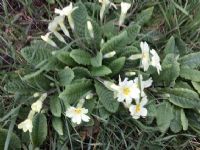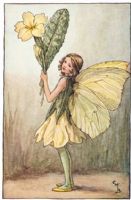

|
|
|
Primrose (Primula Vulgaris) Primrose (Primula Vulgaris) Date added: 06/04/2020 18:44:47 It really is Spring when we can find these - their pale, yellow flowers rising from rosettes of pale green egg- shaped leaves. They are related to cowslips and oxlips, but not related to the very different evening primrose. When we think about the way in which plants and animals are dependent on each other, it is worth noting that primroses (and cowslips ) are the food plant for the rare Duke of Burgundy butterfly which has recently been brought back from the edge of extinction. You can see what happens to such fussy eaters! Primrose Day, April 19th, has its origins in Victorian times. It is the anniversary of the death of British Prime Minister Benjamin Disraeli, 1st Earl of Beaconsfield, in 1881. The primrose was his favourite flower and Queen Victoria would often send him bunches from Windsor and Osborne House. On this day people would wear a primrose in tribute and his statue in Parliament Square would have been decorated with primroses. In the Language of Flowers the primrose was associated with early growth, fears, a sense of being forsaken, inconstancy and innocence. In the past, primroses were used medicinally as a sedative and to treat conditions such as rheumatism, gout, paralysis and delirium but be aware that they can be toxic to cats and other pets. The flowers are edible and can be added to salads. It is easy to crystallise the flowers for cake decorating etc. This is done by dipping them in very lightly beaten egg whites and then drenching them with castor sugar and shaking it off again and then drying on parchment paper and repeating till the sugar layer builds up. They should be stored in an airtight container when completely dry. The Primrose opens wide in spring; She’s dear to folk throughout the land; NB. Wild plants are protected because they are important and precious. Some of them may not be good for you so don’t touch, pick or eat any plant material.
© FNRC
Images related to this news article |
Website designed and maintained by Paul Thompson on behalf of the Friends of Newtown Road Cemetery.


